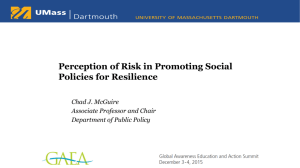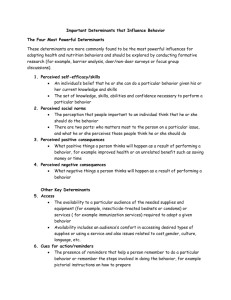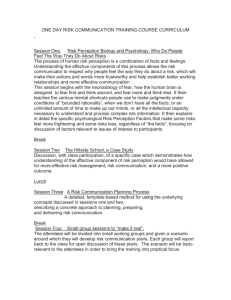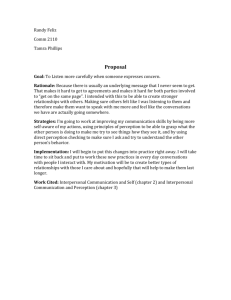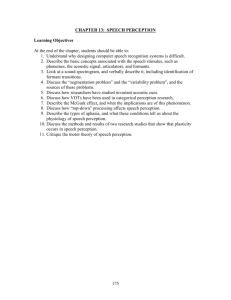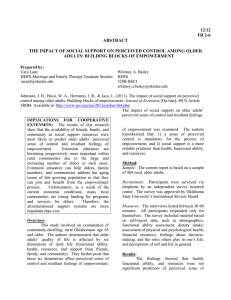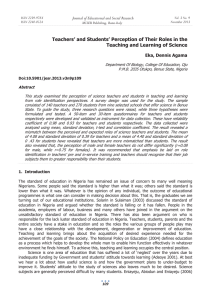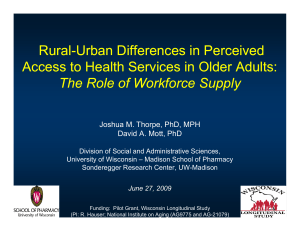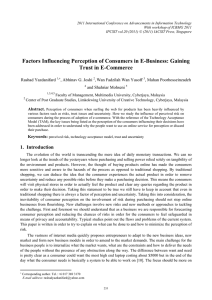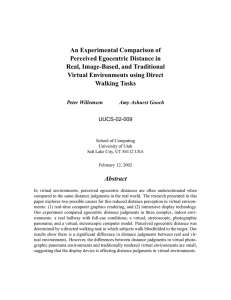Abstract - Family and Consumer Science
advertisement
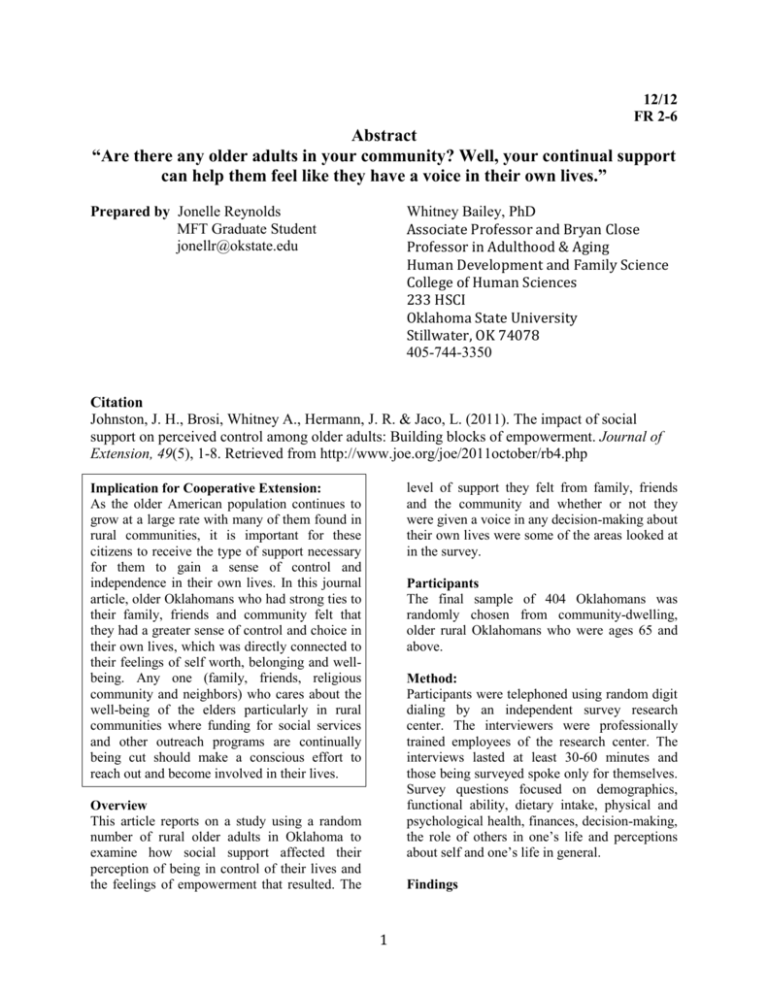
12/12 FR 2-6 Abstract “Are there any older adults in your community? Well, your continual support can help them feel like they have a voice in their own lives.” Prepared by Jonelle Reynolds MFT Graduate Student jonellr@okstate.edu Whitney Bailey, PhD Associate Professor and Bryan Close Professor in Adulthood & Aging Human Development and Family Science College of Human Sciences 233 HSCI Oklahoma State University Stillwater, OK 74078 405-744-3350 Citation Johnston, J. H., Brosi, Whitney A., Hermann, J. R. & Jaco, L. (2011). The impact of social support on perceived control among older adults: Building blocks of empowerment. Journal of Extension, 49(5), 1-8. Retrieved from http://www.joe.org/joe/2011october/rb4.php level of support they felt from family, friends and the community and whether or not they were given a voice in any decision-making about their own lives were some of the areas looked at in the survey. Implication for Cooperative Extension: As the older American population continues to grow at a large rate with many of them found in rural communities, it is important for these citizens to receive the type of support necessary for them to gain a sense of control and independence in their own lives. In this journal article, older Oklahomans who had strong ties to their family, friends and community felt that they had a greater sense of control and choice in their own lives, which was directly connected to their feelings of self worth, belonging and wellbeing. Any one (family, friends, religious community and neighbors) who cares about the well-being of the elders particularly in rural communities where funding for social services and other outreach programs are continually being cut should make a conscious effort to reach out and become involved in their lives. Participants The final sample of 404 Oklahomans was randomly chosen from community-dwelling, older rural Oklahomans who were ages 65 and above. Method: Participants were telephoned using random digit dialing by an independent survey research center. The interviewers were professionally trained employees of the research center. The interviews lasted at least 30-60 minutes and those being surveyed spoke only for themselves. Survey questions focused on demographics, functional ability, dietary intake, physical and psychological health, finances, decision-making, the role of others in one’s life and perceptions about self and one’s life in general. Overview This article reports on a study using a random number of rural older adults in Oklahoma to examine how social support affected their perception of being in control of their lives and the feelings of empowerment that resulted. The Findings 1 Predictors of Perceived sense of control: The older adults had a higher perception of being in control when they had support from their family, friends and the community. However, only when support from friends was tested separate from family and the community did it become a stronger predictor of the older adult’s perceived sense of control. All in all, I would encourage all community members to explore what are the general needs of the elders in your own community and then take a further step to talk with them individually about what they need from you. Give them a voice to decide what they think is important in order for them to feel like you care about their thoughts and feelings without treating them like a child. Whether or not these older adults can move around on their own, just your presence and willingness to help them, however they ask for it, will be more beneficial than just doing only what you think is important for them. On the other hand, the older adult’s health, functional ability and financial resources were not found to be strong predictors of perceived sense of control. Discussion and Conclusion The research showed that contrary to popular belief in the American Society, one’s health and well-being and functional ability (being able to do things on one’s own like dressing or eating or grocery shopping) were shown to have no major impact on whether the older adult felt a sense of control or not. Hence, it could be assumed that the healthier adults interviewed did not see themselves as being in control of their lives any more than those that were less healthy. The same could be said for those who had physical functioning versus those who did not. Even the access to resources to meet one’s needs did not affect the older adult’s perception of being in control. Although, the research findings did show support from family members, friends and the community as a predictor of the older adult’s perceived sense of control, it did not explain exactly how these support systems contributed and/or influenced this perception of being in control. Nonetheless, these findings give us a better understanding of how one becomes empowered. The three limitations found in this study were that only those who could complete a phone survey were used; the survey was self-reported so was likely biased to the individual’s social wants, which brings its validity into question; and survey’s design measured the individuals perception, which could cause major differences in the results. 2

